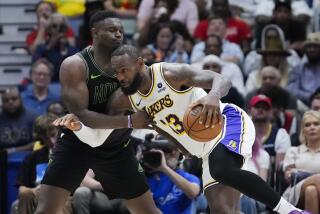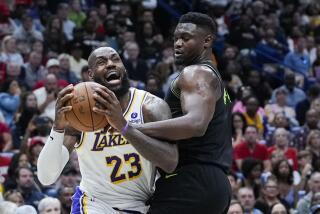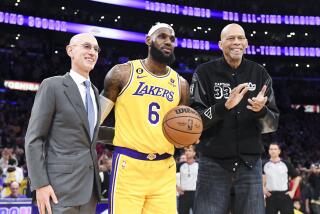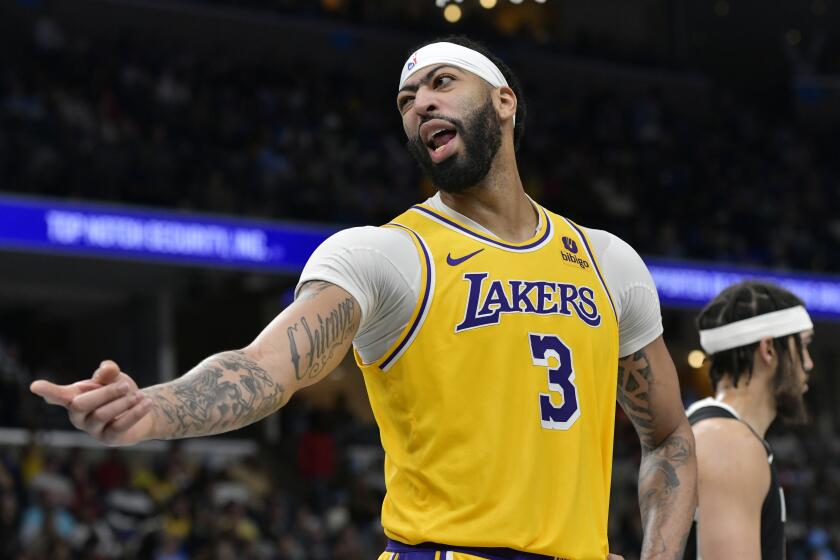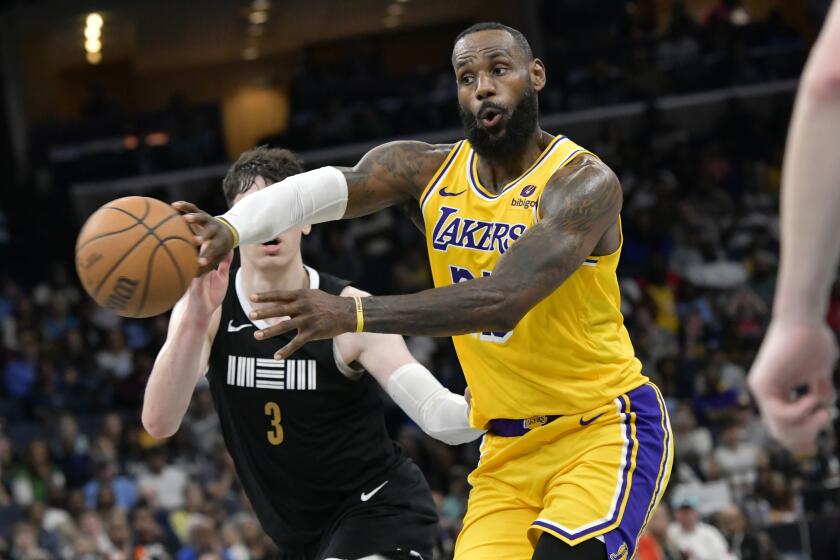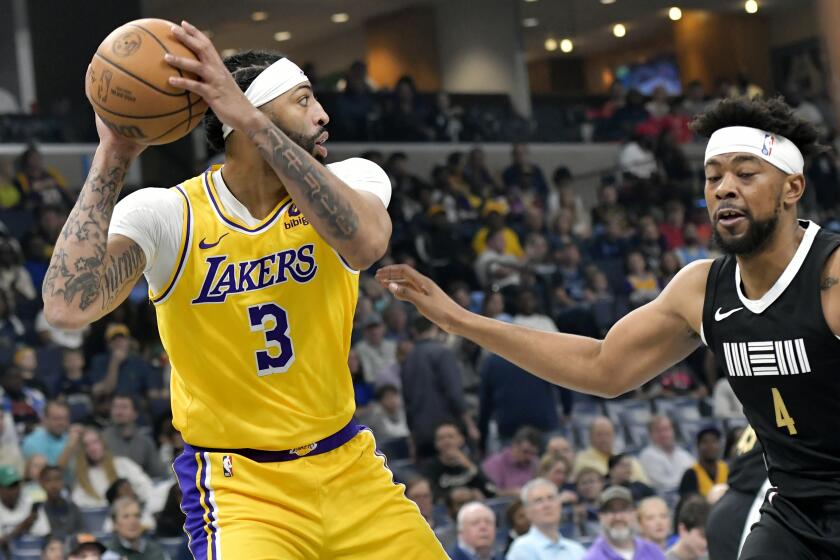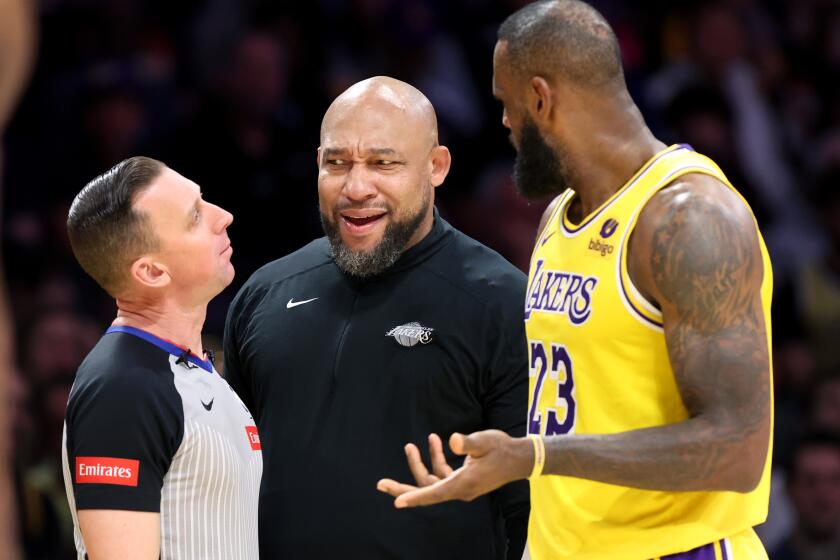Jerry Buss’ legacy is creating a team all of Los Angeles could love
Jerry Buss was one of the greatest owners in the history of professional sports, the creator of the most entertaining championship teams ever, a fearless pioneer who bonded a giant and disparate city under a brilliant blanket of purple and gold.
Yet he felt that watching the Lakers was like watching his children.
“It’s a tearful experience sometimes,” he once said.
Jerry Buss was the showman behind Showtime, the man who won 10 NBA championships by signing some of the greatest and most glitzy players ever, from Magic Johnson to Kareem Abdul-Jabbar, from Shaquille O’Neal to Kobe Bryant.
Yet, during a lunch at his home several years ago, he spoke most fondly of Kwame Brown.
The underachieving center lived across the street from Buss’ hilltop home. They would talk in the morning by the mailbox. They sometimes hung out together after games. If you were a Laker, any kind of Laker, you held a piece of Buss’ heart forever, and when Buss traded Brown, the owner quietly mourned as if he had just lost a superstar.
“We’re friends,” he said.
Jerry Buss, who died Monday morning at 80, was the frontman of the biggest façade in sports. But he was really a small-town Wyoming guy who ran his operation like a corner grocery.
He will be forever known as a playboy in blue jeans with a manicured mustache, a guy who brought the Laker Girls to the court while accompanying a bevy of starlets through the arena tunnel after games.
Yet he empowered daughter Jeanie to become the most respected female executive in sports, encouraging her to grow into the presidency of the Lakers’ billion-dollar business brand.
He will be remembered for spending millions to surround himself with the greatest minds in the game’s history — Jerry West was his general manager, Phil Jackson was his coach, no price too high for that rare owner willing to stifle his ego in return for success.
Yet in his waning years, when it came time to give up his seat as the team’s basketball boss, Buss gave it to his inexperienced son Jim. The decision has been highly criticized, and its ramifications have been felt throughout this season’s debacle, but Buss remained defiantly consistent in support of his family.
Finally, Buss will be remembered for creating a basketball environment for the hip and privileged, courtside seats costing thousands, the dimmed Staples Center lights turning each game into an expensive nightclub.
Yet does anybody ever notice how the hundreds of thousands of fans who show up for the team’s championship parades don’t look like those courtside folks? Buss charged plenty for the rich and powerful few who could afford it, but he spent much more in building a team that was successful and embraceable enough to be loved by everyone throughout the culturally and economically diverse heart of Los Angeles.
Buss, incidentally, missed the 2009 parade. He was playing poker in a local casino. A photo was released that showed him staring down at his cards while the parade aired on a television above his head. It was Buss. He had put in a hard day’s work bringing his family a title, and now the father wanted some time to himself.
It will all be different now.
In Buss’ perfect world, the team’s majority owners would now become his six children, led by Jim and Jeanie Buss. Except Jim and Jeanie have vastly different philosophies, and have barely communicated since Jim botched the attempted rehiring this season of Phil Jackson, who happens to be Jeanie’s fiancé.
There is talk the six children will be unable to find common ground and they will wind up selling the team. Here’s hoping that doesn’t happen. Here’s hoping they can work together to continue their father’s legacy.
It is a legacy of family, of success, of love for the city of Los Angeles, which loved Jerry Buss back and will miss him dearly.
More to Read
All things Lakers, all the time.
Get all the Lakers news you need in Dan Woike's weekly newsletter.
You may occasionally receive promotional content from the Los Angeles Times.
